2018 Cohort of HGHI Burke Global Health Fellows
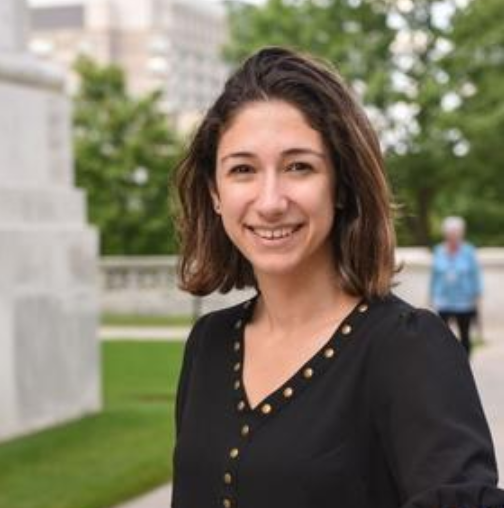
Maha Farhat
MD, MSc
Biography:
Maha Farhat is Assistant Professor of Biomedical Informatics at Harvard Medical School. She holds an MD from the McGill University Faculty of Medicine and an MSc in biostatistics from the Harvard T.H. Chan School of Public Health. Maha is also a practicing physician at the Massachusetts General Hospital Division of Pulmonary and Critical Care Medicine.
Maha’s research focuses on the development and application of methods for associating genotype and phenotype in infectious disease pathogens, with a strong emphasis on translation to better diagnostics and surveillance in resource-poor settings. To date, Farhat’s work has focused on the pathogen Mycobacterium tuberculosis and spans the spectrum from computational analysis to digital epidemiology. She is a PI and Co-Investigator on several large projects funded by NIH including the NIAID and the BD2K initiative.
Project Title: A Big Data Approach to Tuberculosis and Drug Resistance Epidemiology
Burke Fellowship Research Abstract:
Tuberculosis (TB) remains a major global public health threat. In 2016 alone, there were an estimated 10 million TB cases globally and over a million deaths. One of the most challenging and morbid forms of TB is caused by multidrug resistant (MDR) Mycobacterium tuberculosis, with a global annual incidence of nearly half a million cases and rising. Limited declines in TB incidence and rising rates of resistance are at least in part symptoms of struggling local health systems challenged by difficulties in surveilling and diagnosing this disease due to its microbiological hazard and slow growth in culture, in addition to difficulties in delivering the required 6-24 months of relatively toxic therapy. Tuberculosis is in sore need of innovation that can help reform systems, direct resources and improve treatment outcomes. Whole genome sequencing is an emerging tool for diagnosing antibiotic resistance in tuberculosis, however to date the large number of publicly available whole genome sequences have not been capitalized on sufficiently to guide surveillance and improved care. In addition to public whole genome sequence (WGS) data there is an increasing amount of internet based ‘big’ data that if rigorously integrated and analyzed holds considerable promise to modernize tuberculosis epidemiology and surveillance. Maha has proposed to leverage her interdisciplinary background in medicine, biostatistics, and informatics to create a world map of Mycobacterium tuberculosis antibiograms and investigate a potential association between pollution rates and TB incidence in India.
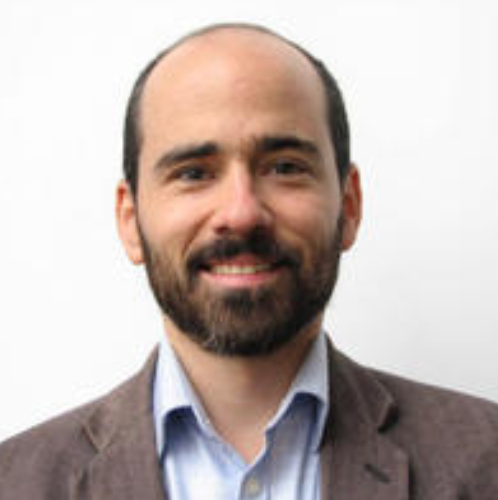
Daniel Palazuelos
MD, MPH
Biography:
Daniel Palazuelos is a global health implementer and educator who holds a variety of positions across Harvard, including, Associate Physician in the Department of Medicine, Assistant Director of the Hiatt Global Health Equity Residency in the Division of Global Health Equity, Clinician-Educator Hospitalist at Brigham and Women’s Hospital, and Cannon Society Global Health Teaching Fellow at Harvard Medical School. Daniel also serves as the Director for Community Health Systems at Partners In Health, and as the Co-founder/Chief Strategist of Compañeros En Salud – México (PIH-Mexico).
In his role for the PIH project in Mexico, Compañeros en Salud-Mexico, he worked to create the strategy for, and successfully launch, the new health care system strengthening. It is envisioned not only as a service provider for local people in the Sierra Madre Mountains of Chiapas, but also as a platform for both U.S. and Mexican medical trainees to learn about global health and to conduct implementation research. In addition to an emphasis on extensive preparation and on-site mentorship, this program offers collaborators the capacity to support intensive and logistically complex research efforts. Noteworthy examples include: a stepped-wedge unidirectional crossover study of the effectiveness of community health worker accompaniment on diabetes and hypertension treatment adherence and clinical outcomes, and a user perception study of how a multifaceted educational intervention has affected local staff career choices.
Project Title:Multi-media Teaching in Global Health and Social Medicine
Burke Fellowship Research Abstract:
All medicine is social medicine, all health is global health; but not all medical trainees learn enough about either to put the best of each field into practice. Although Harvard has made a major commitment to offering these subjects across its many schools, including a mandatory social medicine course during the pre-clinical years at the medical school, there is room to reach even more trainees with new and innovative teaching techniques. Multi-media learning has gained traction as an important pedagogical tool. Harvard medical students have expressed a preference for being introduced to new concepts via such techniques. This fellowship project will combine experiences from several initial successes, including a series of social medicine videos produced for medical students and a highly-trafficked podcast hosted on CHWcentral.org, to explore how such materials can augment learning across the Harvard schools, and beyond.
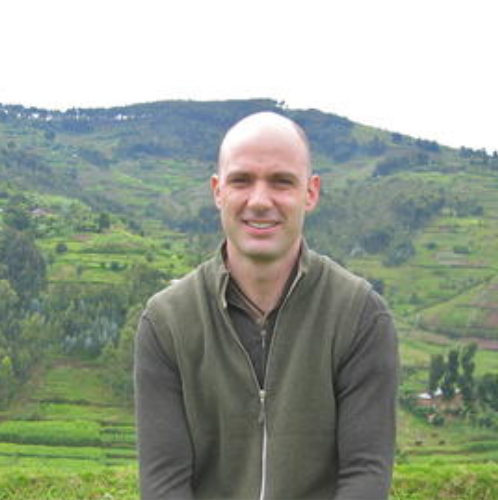
Giuseppe J. Raviola
MD, MPH
Biography:
Giuseppe (Bepi) Raviola is Assistant Professor of Psychiatry in the Department of Global Health and Social Medicine at Harvard Medical School. He is Director of Mental Health for Partners In Health (PIH), and Director of the Program in Global Mental Health and Social Change at Harvard Medical School. A board-certified adult and child/adolescent psychiatrist, he is an attending physician at Boston Children’s Hospital.
In the Department of Global Health and Social Medicine, Bepi works to advance efforts related to training and education, and research, seeking to promote excellence in global mental health care delivery in the countries with which the program partners and at HMS. He is a collaborator in the development of a new cross-Harvard initiative, GlobalMentalHealth@Harvard. In his role with PIH he works to integrate mental health services into the care provided at PIH sites, supporting local team leaders in Haiti, Rwanda, Sierra Leone, Liberia, Malawi, Lesotho, Mexico and Peru on issues related to mental health care delivery and program implementation. Bepi’s scholarly contributions center on the integration and application of quality improvement and public health approaches in innovating clinical practice, teaching and research in the domains of psychiatry and global mental health. This work meets a critical local and global need for innovative mental health delivery solutions, given the significant global burden of mental disorders, and the universal shortage of specialists to address this burden.
Project Title:Assessment of the Feasibility of a Service Delivery Planning Matrix to Expand Care for Common Mental Disorders at Four Global Sites
Burke Fellowship Research Project:
Mental disorders are currently the leading cause of disability worldwide, and they most frequently remain unaddressed and untreated due to a lack of access to mental health care. It is estimated that up to 90% of persons with common and severe mental disorders in low- and middle-income countries receive no care for their mental health conditions. Over the past decade PIH has established mental health program teams at each of its global sites, and collaborative cross-site platforms for mental health care delivery, in collaboration with Harvard University and other partners. These teams have developed significant experience in articulating local, decentralized mental health systems of care in collaboration with Ministries of Health. A Common Mental Disorders Care Service Delivery Planning Matrix to Achieve Universal Mental Health Coverage has been developed by a collaborative cross-site PIH mental health team.
The aims of this study are: to use a formal Theory of Change (ToC) approach to further develop this organizational matrix for the delivery of care for common mental disorders across a collaborative of global stakeholders, focusing on four PIH sites (qualitative); and assess the feasibility, acceptability and readiness of local implementing mental health teams at those four sites to adopt quality improvement methods for the delivery of care for common mental disorders such as depression, using a MUSIQ calculator/tool. This study will use on-site screening data which will provide an estimate of the prevalence of common mental disorders, and the ToC map and planning matrix, to generate a comprehensive estimate of the resources needed to achieve levels of effective coverage of interventions at specific sites.
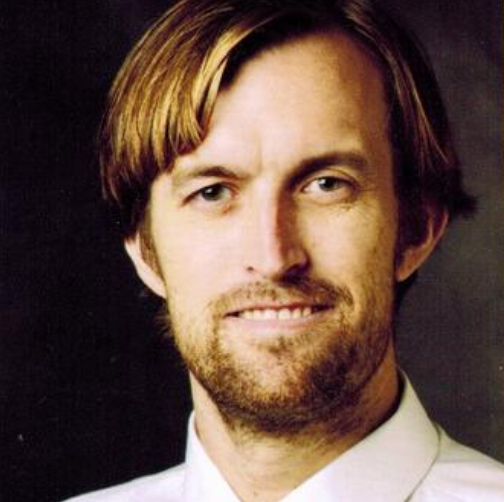
Eugene Richardson
PhD, MD, MA
Biography:
Eugene Richardson is Assistant Professor of Global Health and Social Medicine at Harvard Medical School and an associate physician in the Division of Infectious Diseases at Brigham and Women’s Hospital. He received his MD from Cornell University Medical College and his PhD in Anthropology from Stanford University. He completed his residency in internal medicine and a fellowship in infectious diseases and geographic medicine at Stanford University Medical Center.
As an infectious disease physician and critical medical anthropologist, Eugene conducts biosocial research on epidemic disease in sub-Saharan Africa. Prior to his appointment at HMS, he served as the clinical lead for Partners in Health’s Ebola response in Kono District, Sierra Leone, where he now conducts regional mixed-methods research projects related to the 2013-16 Ebola outbreak. He has also worked as a clinician for Médecins Sans Frontières, a World Bank consultant for HIV prevention in Swaziland, and a research scientist at the Desmond Tutu HIV Centre, University of Cape Town, South Africa.
Project Title: Estimating the True Burden of Ebola Virus Transmission During the 2013-16 Outbreak in West Africa
Burke Fellowship Research Abstract:
The 2013-16 Ebola virus disease (EVD) epidemic in West Africa was the largest in recorded history and was the result of dysfunctional health services, a highly mobile and interconnected population, low public trust in government, burial practices that involved contact with contagious Ebola-infected corpses, and provision of care to infected individuals. Despite over 28,000 reported cases, our understanding of the epidemiology of EVD is limited, including empirical data explaining why this outbreak was so much larger than previous ones. A major gap in the knowledge base is the prevalence and distribution of undocumented survivors, since 1) an estimate of their numbers could help correct for underreporting of cases; and 2) an understanding of how these individuals fell outside of the international containment response could help bolster preparedness for future outbreaks.
The overall goal of this study is to investigate the prevalence and distribution of undocumented EVD survivors in West Africa. Eugene’s main hypotheses are that there are hundreds—if not thousands—of undocumented survivors in the region and that the lack of adequate treatment facilities played a key role in deterring compliance with containment measures.
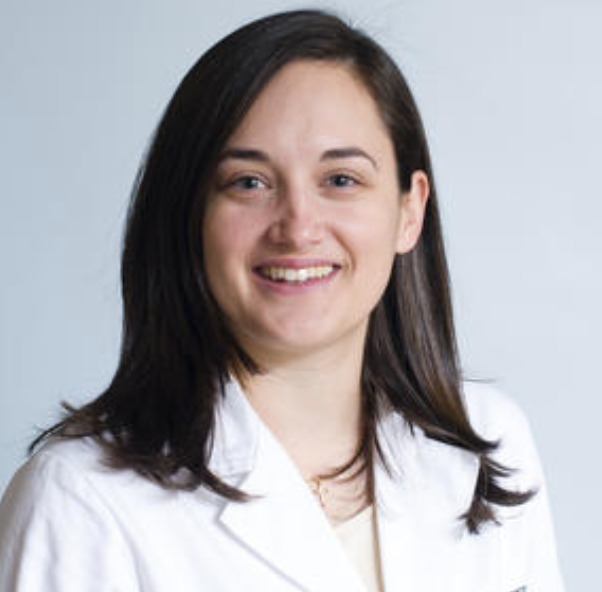
Renee N. Salas
MD, MPH, MS
Biography:
Renee Salas is a clinical instructor of emergency medicine at Harvard Medical School and an emergency medicine physician at the Massachusetts General Hospital (MGH). She received her Doctor of Medicine from the innovative five-year medical school program to train physician-investigators at the Cleveland Clinic Lerner College of Medicine. She concurrently obtained a Master of Science in Clinical Research from the Case Western Reserve University School of Medicine. Subsequently, she received a Master of Public Health from the Harvard T.H. Chan School of Public Health with a concentration in environmental health while completing a Fellowship in Wilderness Medicine at MGH. She was also the recipient of the 2018 MGH Clinician-Teacher Development Award. She has directed her career towards an academic concentration on climate change and health with research focused on addressing the current pressing knowledge gaps in this field. She is a nationally recognized leader on this subject in emergency medicine and is the lead author for the 2018 Lancet Countdown brief for the United States.
Project Title: Impact of Billion-Dollar Weather and Climate Disasters on Healthcare Utilization, Outcomes, and Cost for Elderly Medicare Beneficiaries
Burke Fellowship Research Abstract:
The Lancet Commission on Health and Climate Change has declared climate change “the biggest global health threat of the 21st century.” Globally, climate change is having the biggest health impacts on populations in developing countries, which have contributed least to the emission of the greenhouse gases stimulating this phenomenon. Specifically, climate change is causing an increased frequency and/or severity of extreme weather events. While we know extreme weather events negatively impact health and increase the utilization of healthcare, current studies are limited in scope and applicability. As is true globally, the most affected populations typically are those with the fewest resources and with baseline medical and social vulnerability, such as the elderly. Furthermore, displacement from extreme weather and climate events and the health impacts of displacement are not well understood despite the huge prevalence worldwide with over 24 million individuals displaced in 2016 alone.
Large longitudinal comprehensive datasets, such as Medicare beneficiaries within the United States, are rare worldwide. However, for this project we will utilize this dataset to assess healthcare utilization, outcomes, and cost of certain extreme weather events in elderly Medicare beneficiaries. Most importantly, it will allow the assessment and exploration of the hypothesis that population displacement is an independent predictor of worse health outcomes. Understanding the health and healthcare impacts of climate change driven extreme weather within the U.S., and specifically population displacement, has significant global health implications including informing evidence-based prevention. In addition, this work will potentially engage critical healthcare sectors in the U.S. with implications for optimizing mitigation efforts with significant subsequent global health benefits.


